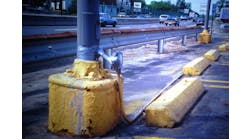Metairie, La.-based electrical contractor Jude Raspino was completely surprised when a Times Picayune reporter called for his reaction to accusations brought against his company, Stuart Services, by Attorney General Charles Foti Jr. On Sept. 12, when Raspino returned to his business after Hurricane Katrina had blown over, he and a skeleton staff, some of whom were living in townhomes leased by the company, decided not to raise prices — even when faced with the rising costs of materials and the additional expense of hooking up FEMA trailers and bringing back out-of-state employees.
“We made a commitment to use our same flat-rate price book,” says Raspino. “We put it in writing.”
Yet, in November Foti accused Raspino of charging rates that were three times the normal amount, meaning price gouging.
There is no federal law that covers price gouging, but at least 13 states, including Louisiana, have limitations or prohibitions against increasing the price of goods or services immediately before, during, or after a state of emergency. However, under each statute, price increases due to additional costs or expenses incurred as a result of the emergency are not considered price gouging. Fortunately, the judge denied the preliminary injunction against Stuart Services. However, Raspino may still face other charges brought against him by the Attorney General. And he's not alone. There have been 2,500 complaints of price gouging filed in Louisiana alone in connection with Hurricanes Katrina and Rita. The following are several ways to defend your business against similar accusations:
Set prices on true cost. “We don't price based on what other electrical companies are charging,” Raspino says. “We do it the responsible way by setting a budget.” Know what your overhead and billable hours are, and then set your prices accordingly. Most electrical contracting firms shoot for a 10% to 15% profit margin, but usually settle for 2% to 3%.
Publish your prices. “I have a published price book that's in every one of my service trucks,” Raspino says. “That way, both the technicians and the customers know what will be charged.” You don't want to surprise your customer with the invoice.
Form best practice groups. “Sometimes people complain that they need more members, but not in their area. They don't want the competition.” Membership in best practice groups in your area will ensure that you are not grossly under- or overestimating the cost of the services you provide in your area.
Get it in writing. At Stuart Services, the customer signs the invoice before and after the work is completed. “The customers approve the price up front, and then they approve the work after it's done,” says Raspino. Stuart Services also uses this step for quality control. The technician on the project signs the invoice after the work has been completed.


